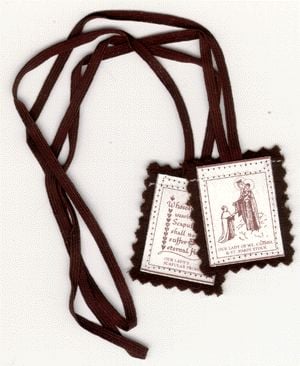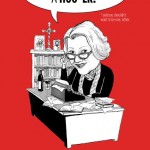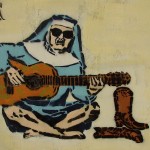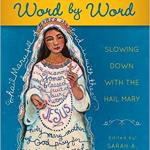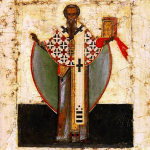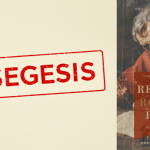“On the Square” is, of course, the featured daily article of First Things Online, and I am remiss in that I had intended to link to the Ronald E. Osborn two-parter posted on Monday and Tuesday. Entitled Obama’s Niebuhrian Moment, it is a long and rather magnificent exposition of the influence of Reinhold Niebuhr on President Obama, as exposed in his Nobel-Prize acceptance speech.
In his December 10, 2009, Nobel Peace Prize acceptance speech, President Barack Obama offered a vigorous defense of the just war tradition in response to problems of evil and injustice in the world. More than this, however, he offered a moral vision that closely followed, without any direct reference, the ideas of perhaps the most influential American theologian of the twentieth century. In a much cited 2007 New York Times article, David Brooks wrote that he had asked then-Senator Obama an off-the-cuff question: Had he ever read Reinhold Niebuhr? “I love him,” Obama replied. “He’s one of my favorite philosophers.” He then proceeded, Brooks reported, to discuss the theologian’s ideas with great enthusiasm and incision. Obama’s speech in Oslo can be read as a concise restatement of Niebuhr’s political ethics as a guide to U.S. foreign policy for the twenty-first century.
It’s a piece for printing out and reading in an easy chair, with a warm libation at the elbow, rather than hunched at a desk, over one’s keyboard.
Interestingly, America Magazine’s weekly podcast is also focused on Niebuhr.
Speaking of America Magazine and First Things, Today’s “On the Square” was written by yours truly, and it is a response to a blogpost from America’s In All Things, wherein Michael Sean Winters sounded a battle cry for Liturgy Wars, and mildly annoyed me by distorting my meaning:
I suspect Winters quotes me, distorts my meaning and then sneers like a fourteen-year-old trying to entertain his friends in the school cafeteria while not actually having read the piece in question, which was written in 2007 for Inside Catholic. Except for my linking to it, “One the Cusp of Something Great” was not associated in any way with First Things, so Winters has wasted some perfectly good (if rather uncharitable) snark, in that respect. I know Winters dearly loves his snark, so I grieve that he has spilled some on infertile ground.
I know, a tad too touchous, right? This Saturday I get to go to confession and again announce, “I have failed in love!” It is really a very small issue; I could have ignored it. Writing on the internet means one deals daily with cherry-picked quotes reposted out of context, or simple misreads; one learns to ignore most of that. I suspect that on Monday I simply wasn’t in the mood to have a very personal bit of writing dismissed as “silliness” with a side-sneered suggestion that I was afflicted with delusions of grandeur. I can certainly be as snotty as anyone, but it all just seemed needlessly aggressive and adolescent, and some days one just says, “enough, already” and must respond. Since neither Winters nor I can resist a Catholic Donnybrook, this may take a while.
Finally, a twitter asking the question “Why is killing abortionists wrong?” brought me to this piece at Reason.com:
Scott Roeder, whose trial begins this week in Wichita, Kansas, wanted to argue that killing the abortion doctor George Tiller was necessary to prevent a greater evil: the murder of unborn children. Since that is not how the law views what Tiller did for a living, it is not surprising that the judge would not let Roeder present a “necessity” defense.
But it is surprising that so many people who proclaim that fetuses have a right to life reject Roeder’s argument out of hand. Killing abortionists may or may not be a good long-term strategy for saving unborn babies, but it is hard to see why the use of deadly force is not morally justified, at least in principle, once you accept the premise that abortion is tantamount to murder.
The piece is not advocating for the murder of abortionists -I would not be linking to it, if it were- the writer, Jacob Sullum, is merely wondering about what people really believe, and putting forth some food for thought. But that reminded me of another piece of mine, also “On the Square” that took a serious look at that question, referencing Dietrich Bonhoeffer:
In weighing the moral question of obedience to institutions who were exceeding their own rights, he once argued, “if a teacher says to a child, ‘did your father come home drunk again last night,’ is the child bound to tell the truth?” Bonhoeffer decided no, the teacher [institution] had intruded beyond her scope, and therefore the child, to honor his father, is not obligated to subject him to judgment or mockery, or for that matter governmental intrusion. Bonhoeffer was, in the course of a terrible war, able to extrapolate that small, defensive lie into a plot to assassinate Hitler.
Rick and Charlie’s questions are sound, but one fears where their
thinking may lead. Bonhoeffer was a unique individual with a very healthy mind and tremendous depth of faith, and he was coming at his issue without carrying forty years of political baggage that could further influence his thinking to a place of imbalance. As extraordinary as he was, Bonhoeffer understood that his uniqueness in no way excepted him from the fact that what he was attempting was an evil—his evil, wholly distinct from Hitler’s own evil—and one for which he would be held to account. Bonhoeffer knew that he could not rationalize his evil or make it less evil in the sight of Hitler’s monstrous regime, and that in the end he would have only God’s grace in which to hope.In another mind, another heart, particularly one beset by decades of politicized, often overheated rhetoric, who knows if such balance and genuine accountability would be possible?
Obviously, I declared that murdering an abortionist cannot be acceptable, and that our errors must always err “on the side of life.” But I figured I’d haul that out in response to the Sullum piece.
So, there – I’ve just added to your reading pile for the day. As we move along, pondering philosophy and throwing mild stinkbombs, let us not forget to pray for the people in Haiti, who are in the midst of a true nightmare. A reader in the comments section suggests asking for the prayers of Ven. Pierre Toussaint, which is a good idea. I have updated my list of relief organizations and will have more on Haiti, later.







